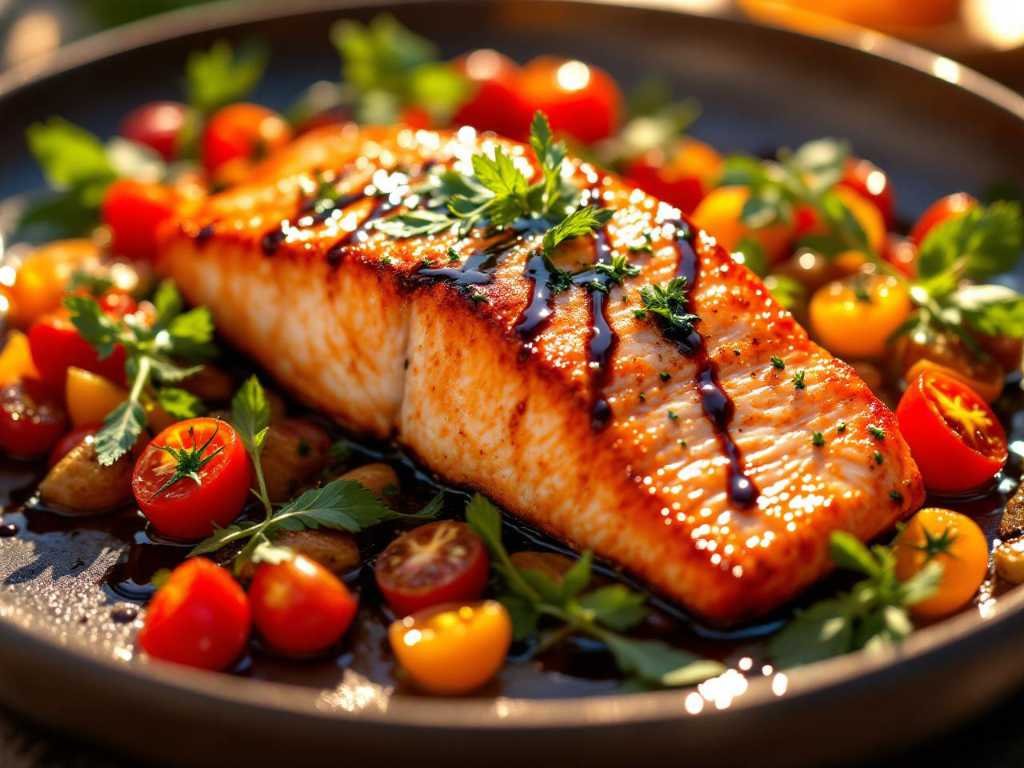Picture this: you’re standing in your kitchen at 6 PM, staring into the fridge, wondering how you can possibly create something delicious that won’t derail your weight loss goals. You’ve heard about the Mediterranean diet’s incredible health benefits, but you’re also trying to cut carbs to shed those stubborn pounds. Sound familiar? Well, here’s some fantastic news – you don’t have to choose between the two! Low-carb Mediterranean dishes offer the perfect marriage of flavor, nutrition, and weight loss success.
The Mediterranean approach to eating has been celebrated for decades as one of the world’s healthiest dietary patterns. It’s packed with heart-healthy fats, vibrant vegetables, and lean proteins that make your taste buds sing while your body thanks you. But what happens when you dial down the carbs while keeping all those amazing Mediterranean flavors? Magic happens, that’s what!
What Makes Low-Carb Mediterranean Dishes So Effective for Weight Loss?
The traditional Mediterranean diet already emphasizes whole foods, olive oil, fresh vegetables, fish, and moderate portions – all fantastic building blocks for healthy weight management. When you reduce the carbohydrate content by swapping out pasta, bread, and rice for low-carb alternatives, you’re essentially turbocharging this already powerful eating pattern.
Research from the National Center for Biotechnology Information shows that low-carbohydrate Mediterranean diets can achieve approximately 58% greater weight loss compared to standard Mediterranean approaches. This isn’t just about dropping numbers on the scale – it’s about improving insulin sensitivity, enhancing fat burning, and maintaining stable blood sugar levels throughout the day.
The beauty of this approach lies in its sustainability. Unlike restrictive crash diets that leave you feeling deprived and cranky, low-carb Mediterranean dishes are naturally satisfying thanks to their high healthy fat and protein content. You’re not just losing weight; you’re nourishing your body with nutrients that support long-term health and vitality.
The Science Behind Mediterranean Low-Carb Success
When you combine Mediterranean eating principles with carbohydrate restriction, several powerful metabolic changes occur. Your body becomes more efficient at burning stored fat for fuel, a process called ketosis. Meanwhile, the anti-inflammatory compounds found in olive oil, herbs, and vegetables help reduce chronic inflammation that can interfere with weight loss.
Studies have shown that this dietary approach can improve insulin clearance and β-cell function, making it particularly beneficial for people with or at risk for type 2 diabetes. The Cleveland Clinic notes that Mediterranean eating patterns can also support cardiovascular health, potentially lowering blood pressure and improving cholesterol profiles.
Essential Ingredients for Low-Carb Mediterranean Cooking

Before we dive into those mouth-watering recipes, let’s talk about stocking your pantry with the right ingredients. The foundation of any great low-carb Mediterranean dish starts with quality components that deliver both flavor and nutrition.
Healthy Fats and Oils
Extra virgin olive oil is your golden ticket to authentic Mediterranean flavors. Don’t skimp on quality here – a good olive oil can transform simple vegetables into something extraordinary. Keep avocado oil on hand for higher-heat cooking, and consider adding tahini and nuts for additional healthy fat sources.
Fresh Herbs and Spices
Mediterranean cuisine comes alive with herbs like basil, oregano, thyme, and rosemary. Fresh garlic, lemon zest, and sea salt are non-negotiables. These flavor powerhouses let you create incredibly satisfying dishes without relying on heavy sauces or processed seasonings.
Low-Carb Vegetables
Zucchini, eggplant, bell peppers, spinach, arugula, and tomatoes form the vegetable backbone of your meals. Cauliflower and broccoli make excellent substitutes for grains, while leafy greens provide essential nutrients with minimal carbohydrate impact.
Quality Proteins
Wild-caught fish, organic poultry, grass-fed meats, and eggs provide the protein foundation for satisfying meals. Don’t forget about plant-based options like hemp seeds and nuts, which add both protein and healthy fats.
Mediterranean Dairy
High-quality feta, mozzarella, and Greek yogurt bring creamy texture and tangy flavors to your dishes. These also provide protein and calcium while keeping carbohydrate counts reasonable.
10 Irresistible Low-Carb Mediterranean Dishes That Actually Work
Now for the fun part – let’s explore ten absolutely delicious recipes that prove you don’t need to sacrifice flavor for your health goals. Each of these Mediterranean low-carb recipes delivers authentic tastes while keeping your carbohydrate intake in check.
1. Zucchini Noodles with Fresh Basil Pesto
Who says you need wheat pasta when you can spiralize fresh zucchini? This dish captures all the comfort of spaghetti with a fraction of the carbs. The secret lies in not overcooking the zucchini noodles – they should maintain a slight crunch that mimics al dente pasta.
Toss your zoodles with homemade pesto made from fresh basil, pine nuts, garlic, parmesan, and good olive oil. Add some grilled chicken or shrimp for extra protein, and you’ve got a meal that’s both satisfying and waistline-friendly. The healthy fats from the nuts and olive oil help your body absorb fat-soluble vitamins while keeping you full for hours.
2. Mediterranean Cauliflower Rice Bowls
Cauliflower rice has become a game-changer for low-carb enthusiasts, and when you dress it up Mediterranean-style, it becomes absolutely irresistible. Start by sautéing your cauliflower rice with garlic and herbs, then build your bowl with grilled vegetables, olives, feta cheese, and a protein of choice.
The key to great cauliflower rice is removing excess moisture after cooking. Spread it on a clean kitchen towel and let it cool slightly – this prevents your bowl from becoming watery and ensures every bite is perfectly textured.
3. Eggplant Parmesan Stacks
Traditional eggplant parmesan gets a low-carb makeover by eliminating the breadcrumb coating and focusing on the natural flavors of the vegetable itself. Slice your eggplant thick, brush with olive oil, and roast until golden. Layer with fresh mozzarella, homemade tomato sauce, and fresh basil.
This dish proves that comfort food doesn’t have to be heavy or carb-laden. The eggplant provides a meaty texture that satisfies those pasta cravings while delivering fiber and antioxidants that support your weight loss goals.
4. Greek-Style Stuffed Bell Peppers
Bell peppers make perfect edible containers for a protein-rich filling that captures classic Greek flavors. Mix ground turkey or lamb with diced tomatoes, onions, herbs, and a touch of feta cheese. The natural sweetness of the peppers balances the savory filling beautifully.
These stuffed peppers are meal prep gold – make a batch on Sunday and you’ve got several satisfying lunches ready to go. They reheat beautifully and actually improve in flavor as the ingredients meld together.
5. Pan-Seared Salmon with Mediterranean Vegetables

Salmon provides omega-3 fatty acids that support both brain health and fat metabolism. Pair it with roasted Mediterranean vegetables like zucchini, bell peppers, and cherry tomatoes drizzled with olive oil and herbs.
The combination of high-quality protein and healthy fats makes this dish incredibly satiating. Plus, the colorful vegetables provide antioxidants and fiber that support overall health while keeping carbohydrates minimal.
6. Shakshuka with Extra Vegetables
This North African dish that’s been embraced by Mediterranean cuisine features eggs poached in a spiced tomato sauce. Boost the vegetable content with extra bell peppers, zucchini, and spinach to create a more substantial, nutrient-dense meal.
Shakshuka is naturally low in carbs and high in protein, making it perfect for any meal of the day. The combination of eggs and vegetables provides sustained energy without blood sugar spikes.
7. Mediterranean Lettuce Wraps with Herb-Crusted Chicken
Large lettuce leaves become your bread substitute in these fresh, crunchy wraps. Fill them with herb-crusted chicken, diced cucumber, tomatoes, red onion, and a dollop of tzatziki made with Greek yogurt.
These wraps are perfect for hot summer days when you want something light yet satisfying. The high water content of the vegetables helps with hydration, while the protein keeps hunger at bay.
8. Grilled Halloumi and Vegetable Skewers
Halloumi cheese has a unique ability to hold its shape when grilled, making it perfect for skewers. Alternate chunks of halloumi with bell peppers, zucchini, and red onion. Brush with olive oil and herbs before grilling.
The salty, squeaky texture of grilled halloumi is incredibly satisfying and provides both protein and calcium. Paired with grilled vegetables, these skewers make an excellent light dinner or impressive appetizer.
9. Mediterranean Zucchini Fritters
Grated zucchini mixed with herbs, eggs, and a small amount of almond flour creates crispy fritters that are both satisfying and nutritious. Serve with a dollop of Greek yogurt mixed with garlic and herbs.
These fritters are a great way to use up abundant summer zucchini while creating something that feels indulgent but supports your health goals. The combination of vegetables and protein makes them surprisingly filling.
10. Braised Chicken Thighs with Olives and Tomatoes
Bone-in chicken thighs braised with tomatoes, olives, and Mediterranean herbs create a rich, flavorful dish that’s perfect for cooler weather. The natural fats in the chicken skin help carry the flavors throughout the dish.
This one-pot meal requires minimal preparation but delivers maximum flavor. The collagen from the bone-in thighs creates a rich sauce that makes simple vegetables taste extraordinary.
How These Dishes Support Your Weight Loss Journey
Each of these low-carb Mediterranean dishes works synergistically to support sustainable weight loss. The high fiber content from vegetables helps you feel full while supporting digestive health. Healthy fats from olive oil, nuts, and fish provide sustained energy and help your body absorb essential vitamins.
The protein in these meals supports muscle maintenance during weight loss, which is crucial for keeping your metabolism running efficiently. Unlike crash diets that can leave you feeling weak and deprived, this approach nourishes your body while creating the caloric deficit needed for weight loss.
Research suggests that Mediterranean dietary patterns can also improve sleep quality and reduce stress-related eating – two factors that significantly impact weight management success.
Making the Transition: Practical Tips for Success
Adopting a low-carb Mediterranean lifestyle doesn’t have to be overwhelming. Start by replacing one high-carb meal per day with a Mediterranean alternative. Maybe swap your morning cereal for Greek yogurt with nuts and berries, or replace your lunch sandwich with a hearty salad topped with grilled chicken and olive oil.
Meal prep is your friend with this approach. Many Mediterranean dishes actually improve in flavor when made ahead, allowing the herbs and spices to meld together. Spend a couple of hours on weekend food prep, and you’ll set yourself up for a week of delicious, healthy eating.
Don’t forget about the social aspect of Mediterranean eating. This dietary pattern traditionally emphasizes sharing meals with family and friends, eating slowly, and savoring each bite. These practices naturally support portion control and increased meal satisfaction.
For those following comprehensive wellness programs, these dishes complement approaches outlined in sustainable weight loss strategies perfectly. The combination of nutrient-dense foods and mindful eating practices creates a foundation for long-term success.

Beyond Weight Loss: Additional Health Benefits
While weight loss might be your primary goal, the benefits of low-carb Mediterranean eating extend far beyond the scale. This approach can improve cardiovascular health markers like blood pressure and cholesterol levels. The anti-inflammatory compounds in Mediterranean foods may also support brain health and reduce the risk of chronic diseases.
Many people report improved energy levels and better sleep quality when following this eating pattern. The stable blood sugar levels that result from reduced carbohydrate intake can eliminate the afternoon energy crashes that send many people reaching for sugary snacks.
The high antioxidant content of Mediterranean foods may also support skin health and slow the aging process. When you’re nourishing your body with nutrient-dense whole foods, the benefits show up in ways you might not expect.
Frequently Asked Questions
Can I still enjoy wine on a low-carb Mediterranean diet?
Moderate wine consumption, particularly red wine, is traditionally part of the Mediterranean pattern. However, if weight loss is your primary goal, limit alcohol intake as it can slow fat burning and add calories without significant nutritional value.
How many carbs should I aim for daily?
Most people see excellent results keeping net carbs between 50-100 grams per day while following Mediterranean principles. This allows for plenty of vegetables and some fruit while maintaining the metabolic benefits of carbohydrate restriction.
Is this approach suitable for vegetarians?
Absolutely! Mediterranean cuisine offers plenty of vegetarian options using dairy, legumes, nuts, and seeds as protein sources. Focus on dishes featuring cheese, and plant-based proteins while maintaining the low-carb approach.
How quickly will I see results?
Many people notice increased energy and reduced bloating within the first week. Significant weight loss typically becomes apparent after 2-4 weeks, though individual results vary based on starting point, adherence, and overall lifestyle factors.
The journey toward better health doesn’t have to mean sacrificing the foods you love. These low-carb Mediterranean dishes prove that you can eat incredibly well while supporting your weight loss goals. The combination of fresh ingredients, healthy fats, and satisfying proteins creates meals that nourish both body and soul.
Remember, sustainable weight loss is a marathon, not a sprint. By choosing nutrient-dense foods that satisfy your taste buds and support your health goals, you’re setting yourself up for long-term success. For more comprehensive guidance on creating a balanced approach to wellness, explore our ultimate balanced diet guidelines to complement your Mediterranean journey.
Start with just one or two of these recipes this week, and notice how satisfying and energizing real, whole foods can be. Your body – and your taste buds – will thank you for making the switch to this delicious, sustainable way of eating.


